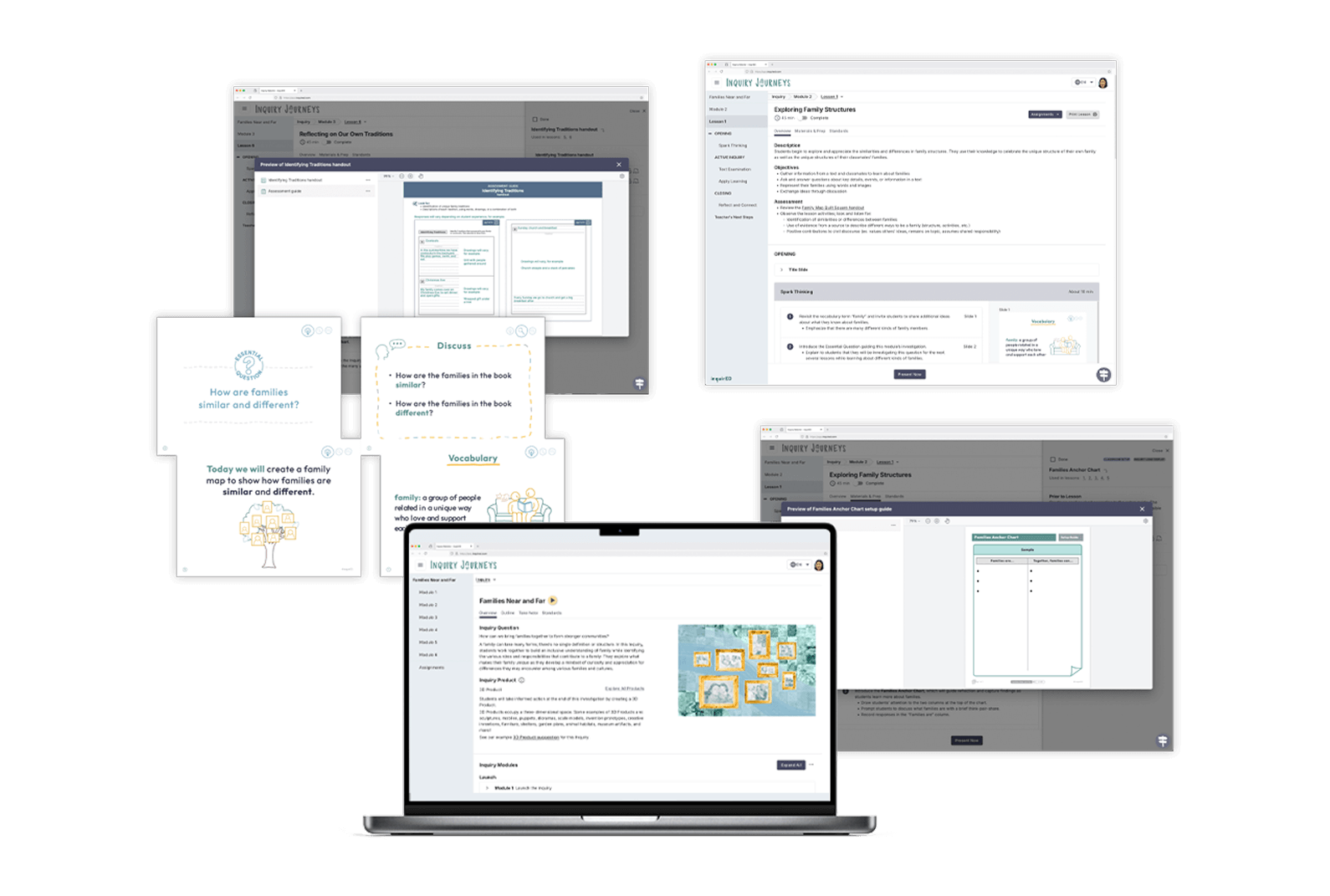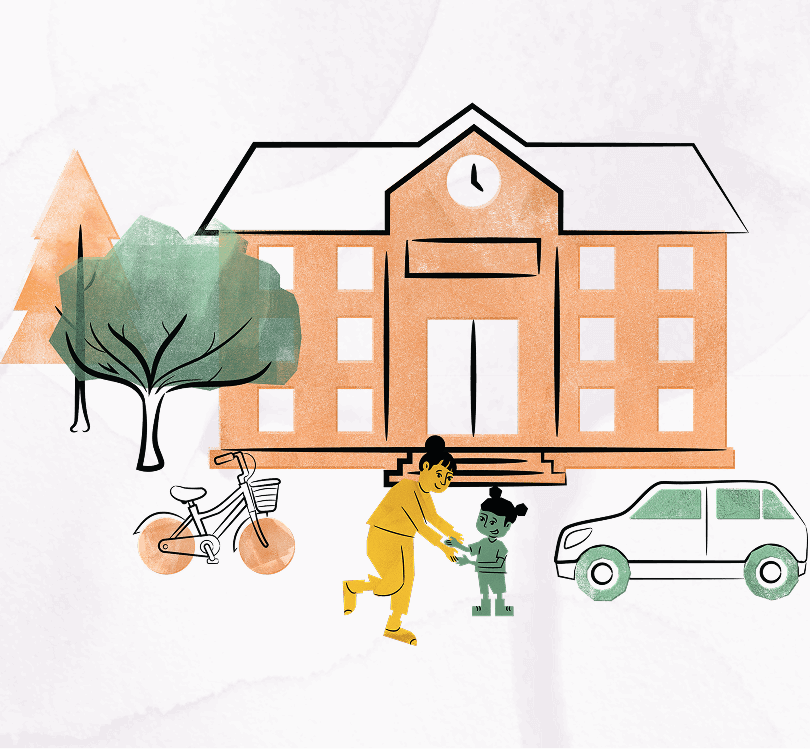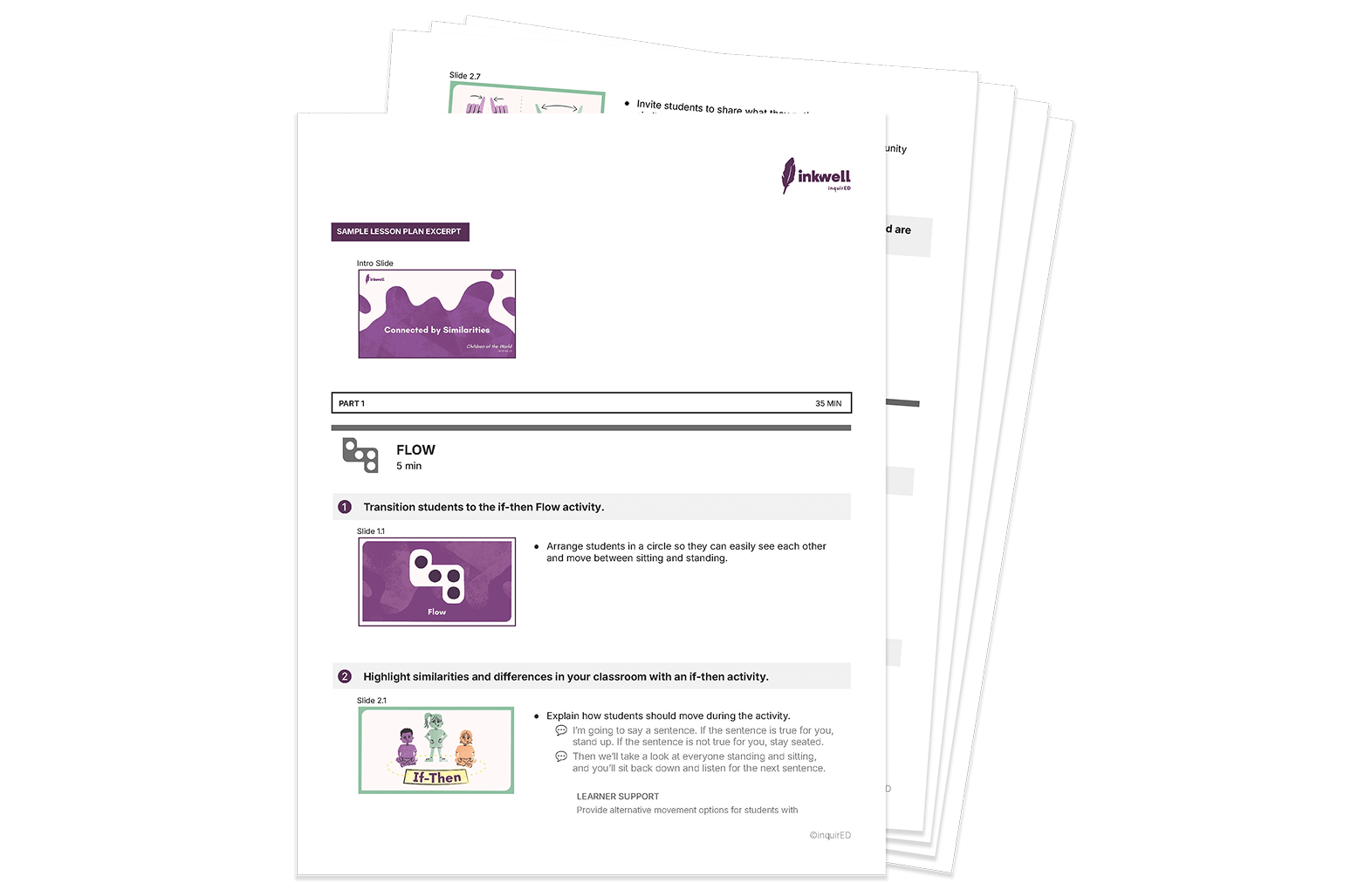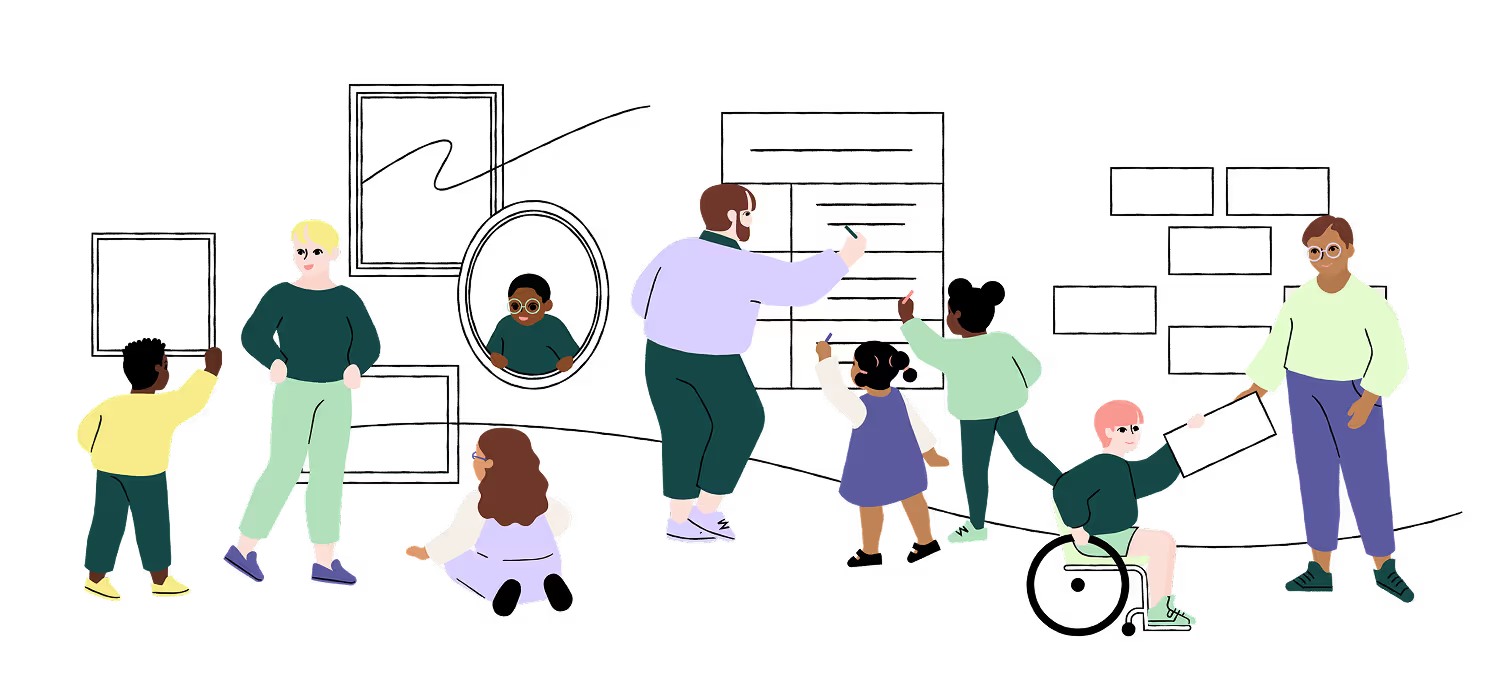

Better Together: ELA and Social Studies
Meet Inkwell, K–5 core ELA and core social studies in one, cohesive instructional block. But Inkwell is so much more than just a mix of subjects; it's a cohesive inquiry-based learning experience where reading, writing, speaking, and listening skills are applied with depth, context, and purpose.
- Two sets of core standards, addressed in one instructional block
- Grounded in the Science of Reading
- Explicit, daily embedded writing instruction
- Content-rich social studies investigations
- An inquiry-based approach to bring it all together
Inkwell first grade overview
First grade of Inkwell is the story of how communities are built, shaped, and changed over time. First graders are beginning to look beyond their immediate experiences at home and school to think about the broader community. This unit builds on their curiosity by introducing the basic components of community life, including diversity, shared traditions, goods and services, and civic cooperation.
- Unit 1 starts close to home as students explore what makes a strong community through people’s differences, traditions, jobs, and cooperation.
- Unit 2 widens the lens to geography, investigating how places and environments shape the way people live and connect.
- Unit 3 looks across time to see how communities change, studying leaders and events that show how people solve problems and create a better future.
Building Blocks of Society
Writing Focus: Informative
Students explore how communities function and how their members’ roles and actions make them strong . Through texts that explore family, school, and civic scenarios, they discover ways that different strengths and common ground can build community at different scales.
Students move from the basics of sentence construction, to the fundamentals of informative paragraphs, with facts and closure, as they write to explain what they’ve learned from the texts about living and working together.
Adaptations to the Environment
Writing Focus: Narrative
Students investigate the relationship between humans and the environment. Through texts that explore life in places in different parts of the world, they discover how land, water, climate, and resources impact how people live, work, play, and connect.
Students build increasing proficiency with sentence construction with a focus on descriptive language, building toward sequenced narratives with vivid details about places they’ve come to understand.
Civic Foundations
Writing Focus: Opinions
Students investigate the relationship between civic structures and the people, and how they can work together to make communities safe and fair. Through texts that explore rules and laws, shared decision making, and leadership, they discover how all citizens- even kids- can work for the common good.
Along the way, students build increasing proficiency with language to distinguish between fact and opinion and support their own structured opinion pieces, with reasons and closure.
Structure of an Inkwell unit
An Inquiry unit begins with a Launch Module and concludes with a Transfer Module. In between, students engage in four Investigation Modules that build knowledge and disciplinary thinking over time. Each inquiry unit is driven by an Inquiry Challenge—a compelling call to action or central problem—that frames learning across modules.
Over the course of a year, students complete three full inquiry units, each lasting approximately 50-52 instructional days, for a total of about 150-156 days of core instruction. High-quality, complex texts anchor learning throughout, ensuring depth and rigor.
1 Module | 2 Lessons

Lesson
Hook students into the unit’s inquiry challenge statement and content focus.
4 Modules | 10-12 Lessons each




Investigation
Build knowledge and skills through module long investigations of essential questions.
1 Module | 5 Lessons

Transfer
Transfer learning to a new context.
Inkwell first grade overview
Building Blocks of Society
Inquiry Challenge: We can create a stronger community
First graders are beginning to look beyond their immediate experiences at home and school to think about the broader community. This unit builds on their curiosity by introducing the basic components of community life, including diversity, shared traditions, goods and services, and civic cooperation.
Students explore how people bring different backgrounds, talents, and perspectives into a community, and how they work together to meet needs, solve problems, and celebrate important events. By engaging with stories, historical case studies, and informational texts, students will develop foundational knowledge of how communities function while strengthening their informational reading, writing, and communication skills.

Launch
This is a space for the module description and other info like essential questions, etc.
What We Wonder
This Inquiry challenges students to explore diverse historical sources to form a deeper understanding of the answers to the engaging questions at the heart of this rich and culturally-responsive Inquiry.
What We Wonder
This Inquiry challenges students to explore diverse historical sources to form a deeper understanding of the answers to the engaging questions at the heart of this rich and culturally-responsive Inquiry.
Human Characteristics
Essential Question: How do people show respect for differences?
What We Wonder
This Inquiry challenges students to explore diverse historical sources to form a deeper understanding of the answers to the engaging questions at the heart of this rich and culturally-responsive Inquiry.
What We Wonder
This Inquiry challenges students to explore diverse historical sources to form a deeper understanding of the answers to the engaging questions at the heart of this rich and culturally-responsive Inquiry.
What We Wonder
This Inquiry challenges students to explore diverse historical sources to form a deeper understanding of the answers to the engaging questions at the heart of this rich and culturally-responsive Inquiry.
What We Wonder
This Inquiry challenges students to explore diverse historical sources to form a deeper understanding of the answers to the engaging questions at the heart of this rich and culturally-responsive Inquiry.
What We Wonder
This Inquiry challenges students to explore diverse historical sources to form a deeper understanding of the answers to the engaging questions at the heart of this rich and culturally-responsive Inquiry.
What We Wonder
This Inquiry challenges students to explore diverse historical sources to form a deeper understanding of the answers to the engaging questions at the heart of this rich and culturally-responsive Inquiry.
What We Wonder
This Inquiry challenges students to explore diverse historical sources to form a deeper understanding of the answers to the engaging questions at the heart of this rich and culturally-responsive Inquiry.
What We Wonder
This Inquiry challenges students to explore diverse historical sources to form a deeper understanding of the answers to the engaging questions at the heart of this rich and culturally-responsive Inquiry.
What We Wonder
This Inquiry challenges students to explore diverse historical sources to form a deeper understanding of the answers to the engaging questions at the heart of this rich and culturally-responsive Inquiry.
What We Wonder
This Inquiry challenges students to explore diverse historical sources to form a deeper understanding of the answers to the engaging questions at the heart of this rich and culturally-responsive Inquiry.



